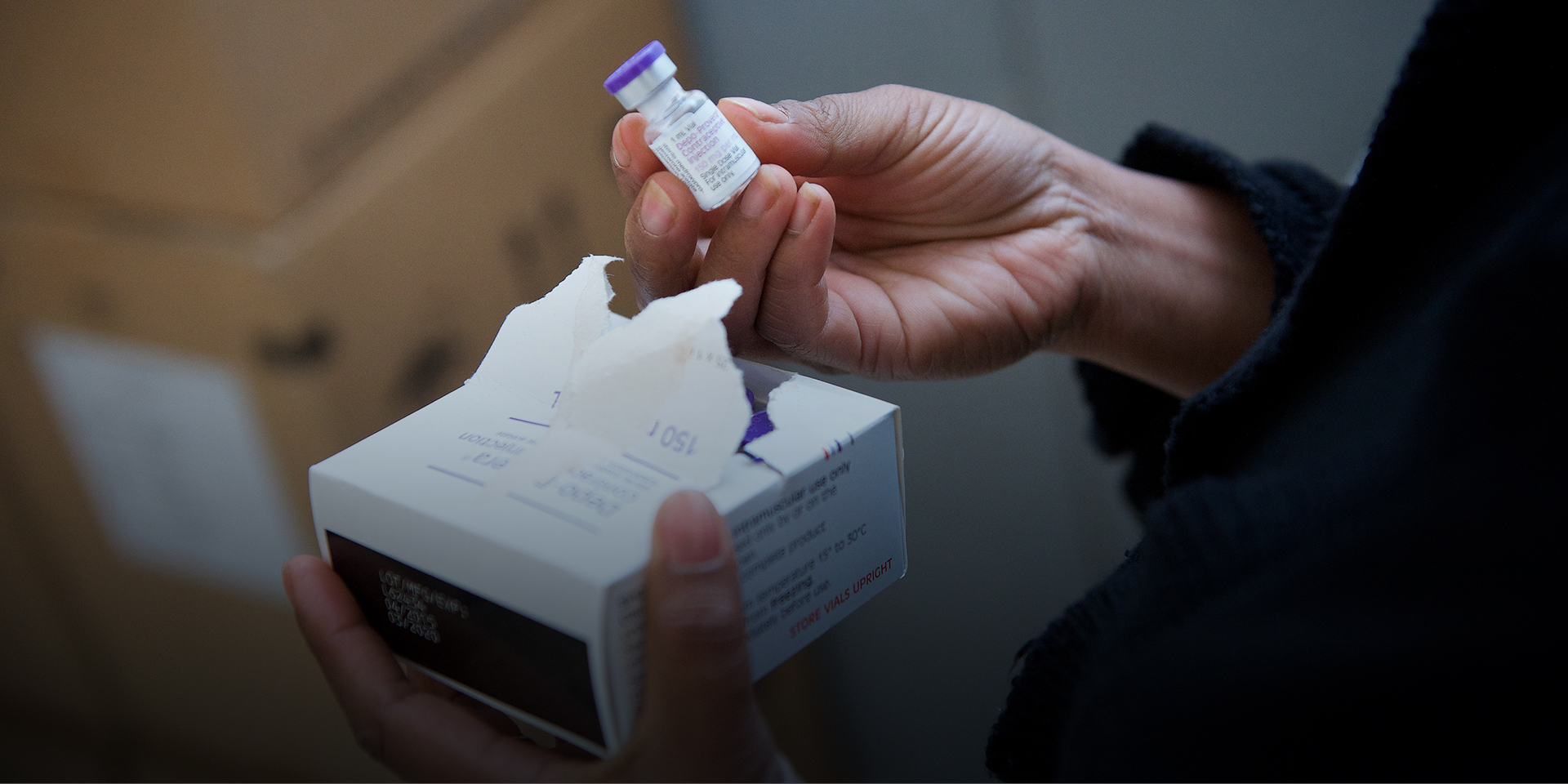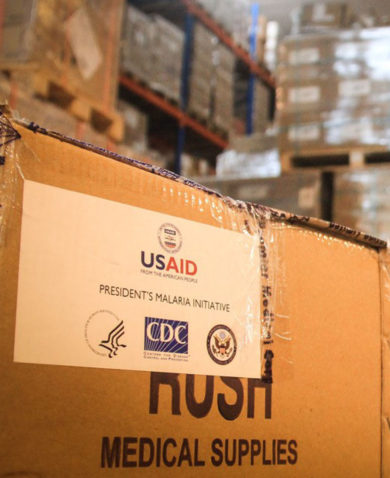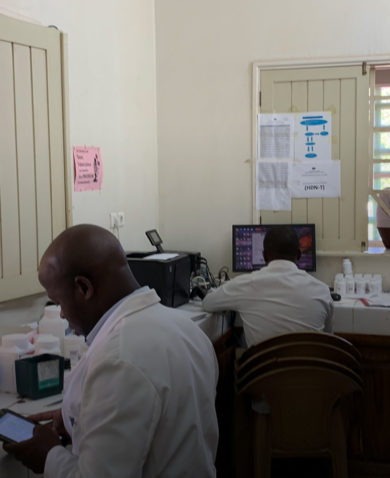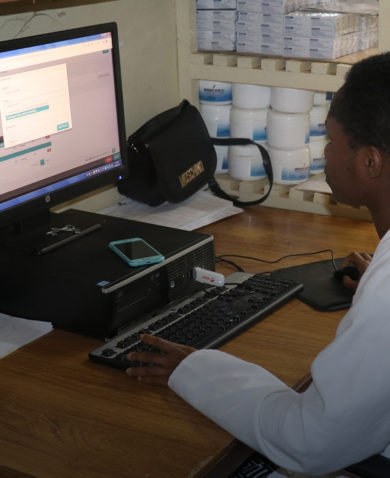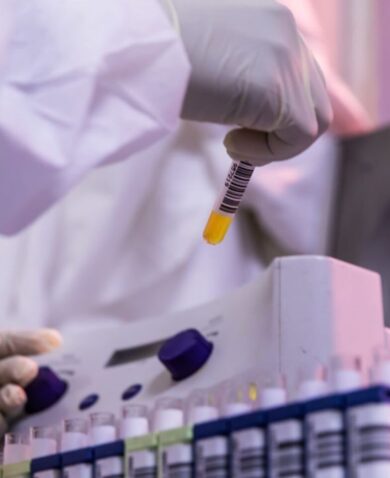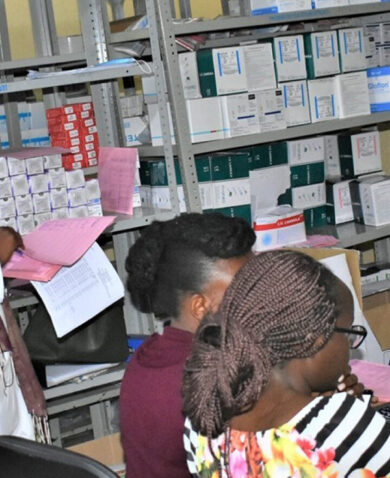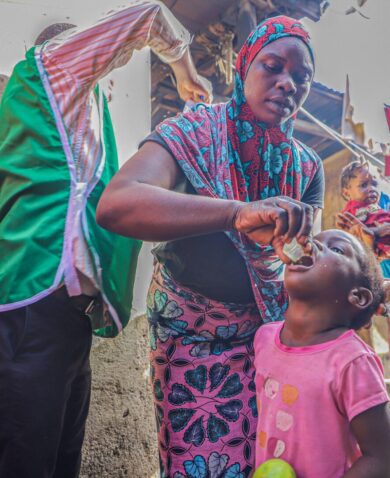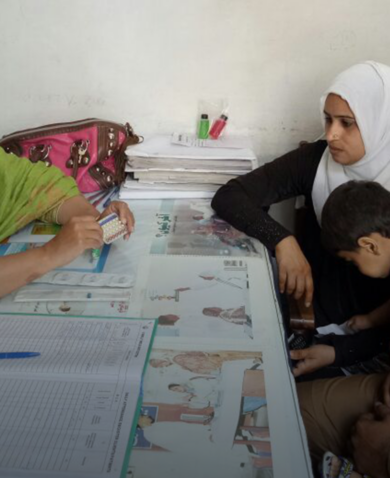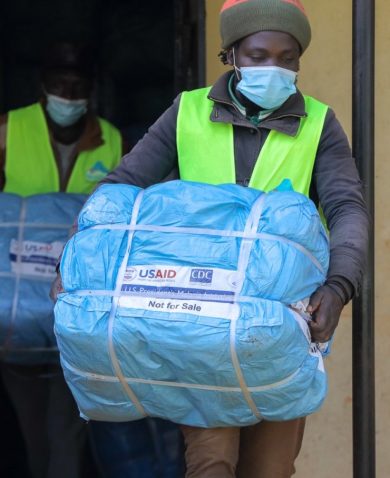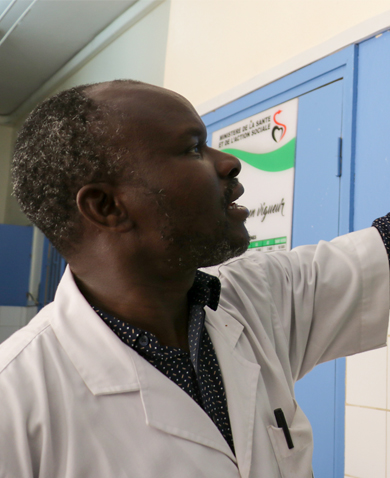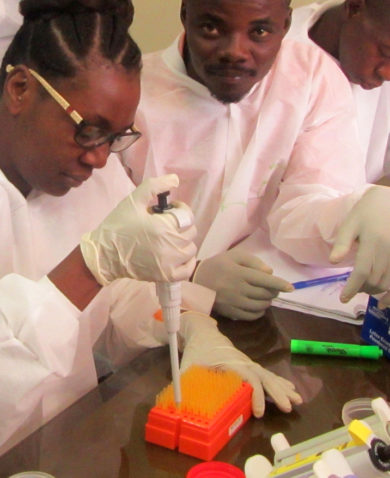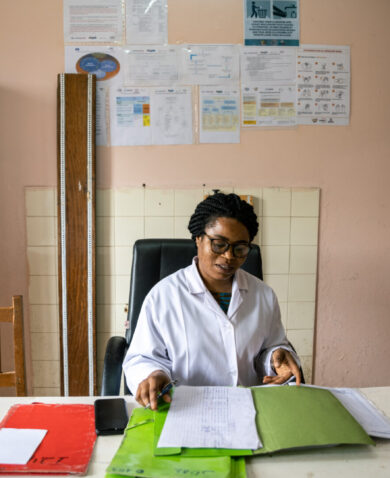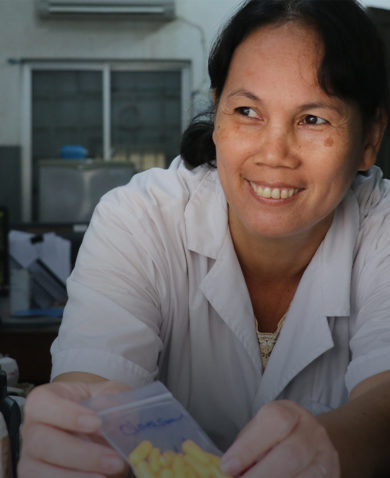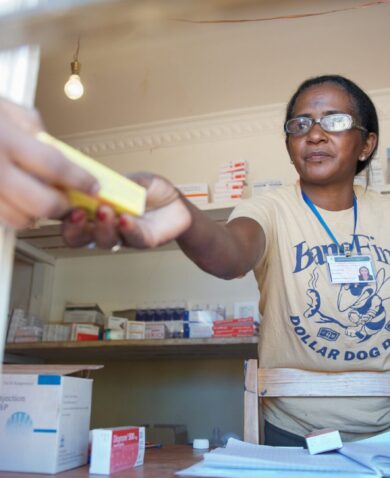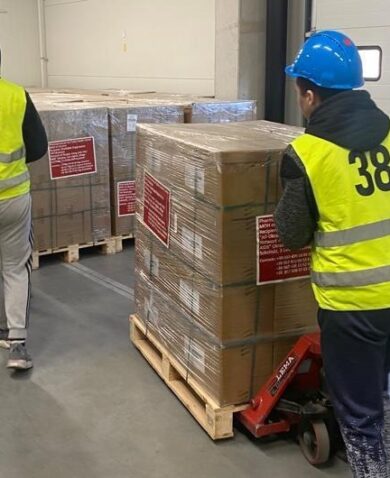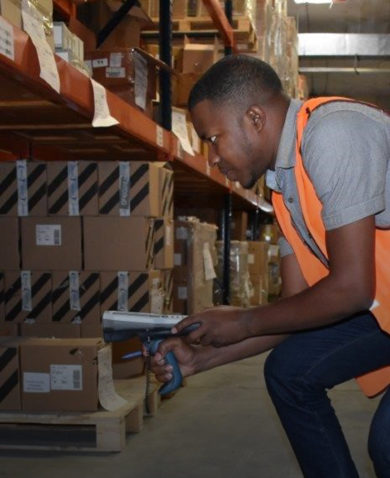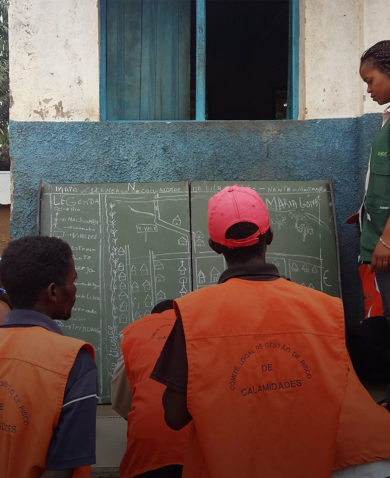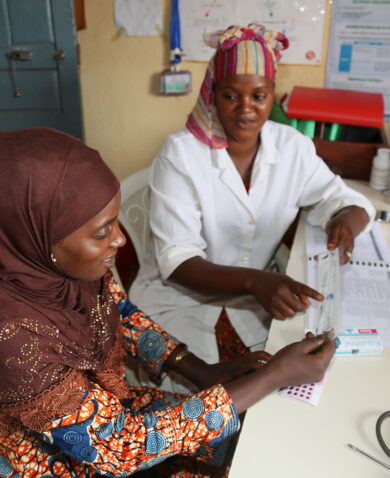The project is using standards from the commercial supply chain sector for its performance measures and is increasingly operating as a commercial operation, however, it faces challenges not confronted by established commercial supply chains. GHSC-PSM’s deliveries of life-saving health commodities are provided to areas with sometimes poor infrastructure, connectivity and, at times, places where civil order has broken down. Unlike an Amazon or UPS, with established commercial supply chains, the core of GHSC-PSM’s work is humanitarian.
“People, not profit, is what drives our mission,” said GHSC-PSM Project Director Jamey Butcher in a recent op-ed. “Our goal is to pair private sector efficiency with a social mission.”
In addition to improving GHSC-PSM’s on-time delivery rates, the project is increasing end-to-end data visibility, decreasing supply chain costs, and continuing to implement innovative ways to use competitive, commercial approaches to maximize its support to country governments and the people it serves to advance long-term country ownership and sustainability. Below are some highlights from the report:
- Delivering more: GHSC-PSM has procured more than $1.2 billion in health commodities over the life of the project.
- Decreasing costs: The project has decreased overall supply chain costs associated with delivering one U.S. dollar of product by 34 percent, and reduced overall cycle times (commodity procurement to arrival in country) by 5 percent since last quarter
- Meeting global health objectives. GHSC-PSM continued to contribute meaningfully to our clients’ global health objectives this quarter, including continued work improving the appropriate management of oxytocin, a medicine that has been in use for over one hundred years to prevent maternal deaths.
- Increasing data visibility: Across health areas, the project continues to collect, manage, and share data on commodity availability as a global good by providing health managers with information on the availability of commodities. Often, in places like South Sudan, this is the first time such information is made available.
- Collaborating globally. The scale, scope, and complexity of managing a global supply chain requires collaboration with many global and local partners to ensure the availability of health commodities. As such, the project contributed evidence to inform development of global guidelines and data to support efforts to allocate product to meet countries’ needs.
- Innovating in procurement: GHSC-PSM continues to implement innovative ways to use competitive, commercial approaches to supplier contracting to maximize value to the U.S. Government and supported countries. Recently, the project completed competition for freight forwarders for more than 2,500 shipping lanes.
- Expanding presence: The project expanded its country presence to 32 field offices, and over the life of the project, has delivered commodities and health systems strengthening technical assistance to approximately 60 countries worldwide.
- Saving lives: Since the project began, GHSC-PSM has delivered the following:
- Enough antiretroviral therapy to provide a total of more than 2.5 million years of HIV treatment
- Antimalarial medication to treat more than 74 million infections
- Contraceptives to provide 28 million couple years of protection

